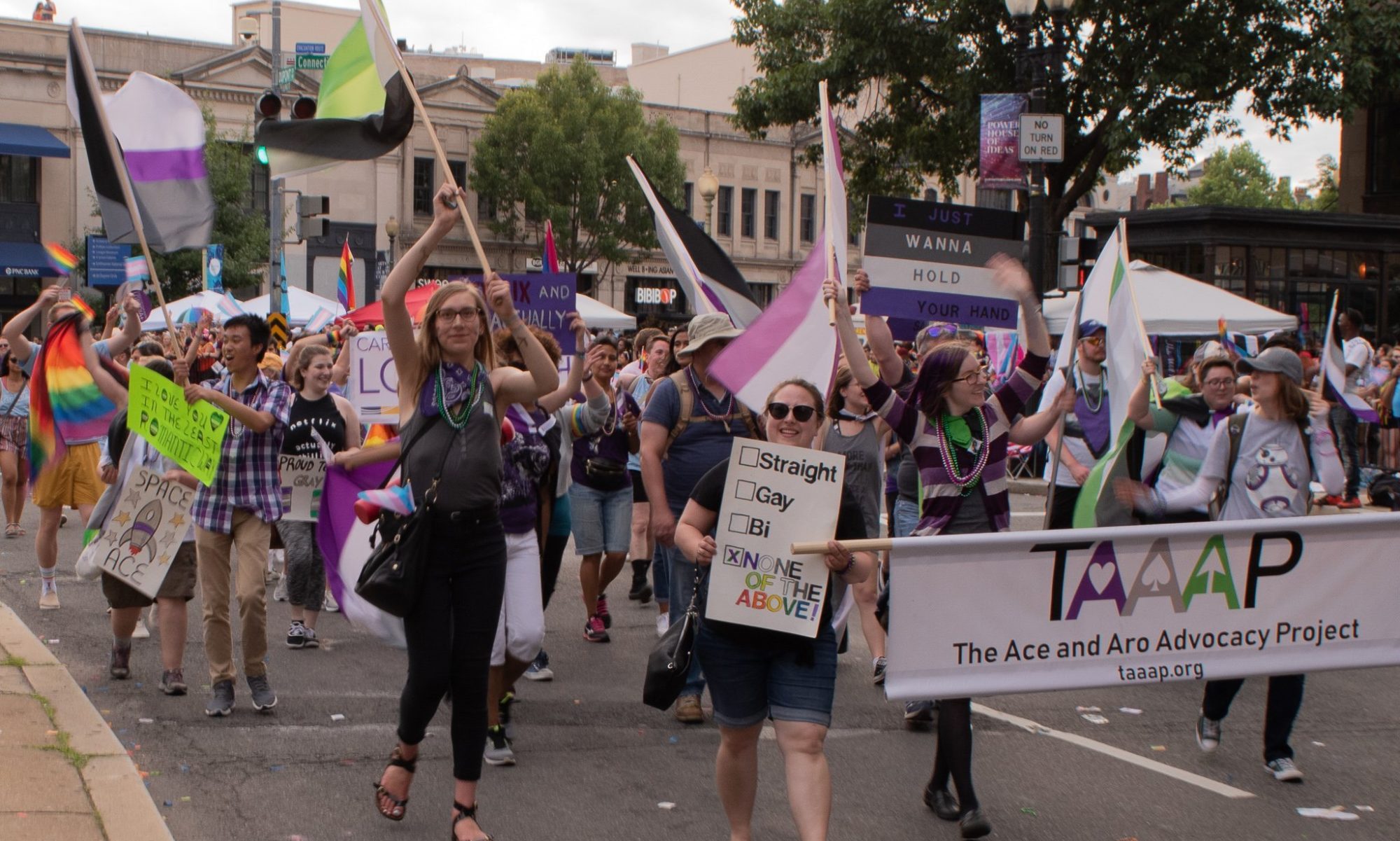Note: This statement has been edited to address the helpful feedback we’ve gotten. This is meant as a statement of TAAAP’s values. Decolonization is a long process that will never be fully completed, but members of TAAAP want to be held accountable for the ways in which we perpetuate and participate in colonial thinking and actions. We welcome further feedback and corrections.
The Ace and Aro Advocacy Project was founded in the United States, and almost all of our members, as well as the people in the communities we serve, reside in the United States or in other colonized countries. Colonialism is violence, and living as a settler in colonized countries means participating in that violence. Even as we fight to bring attention and resources to our underserved and underrepresented identities, it is essential that we respect and acknowledge the rightful caretakers of colonized lands. We must also always remember and acknowledge the history of violence against Indigenous peoples, and the violence still practiced and institutionalized in our societies today. TAAAP is based out of Maryland, which is the traditional home of many Indigenous peoples, including, but not limited to, the Accohannock, Anacostan, Massawomeck, Manahoac, Nentego, Piscataway, Pamunkey, and Susquehannock peoples. (You can check what peoples have claim to which lands at this site: native-land.ca.) Some of these peoples are not listed on this map or acknowledged today, but we know that they still exist and wish to acknowledge them as well. Many of these peoples were driven away, were enslaved, or were killed, whether through violence or disease. Plenty of these peoples survive today. Now, around the world, Indigenous populations are more likely to live in poverty, be disenfranchised by colonial governments, and face violence than almost any other population.
While most of our members are settlers who benefit from and participate in colonialism, we are working to learn more about non-Western modes of thinking, including valuing different ways of knowing alongside the purely intellectual or scientific. These ways of knowing include mythic, experiential, and spiritual. (You can learn more at https://tapestryinstitute.org/ways-of-knowing/.) We’re starting to focus on learning about other ways that people may identify with aromantic and/or asexual communities without necessarily using that kind of categorization or labeling. Our first step in the process is gathering resources and reaching out to Indigenous activists, scholars, and people in the queer community. We recognize that many of the concepts that we are fighting against, including sex-, amato-, and heteronormativity, are not inherent to people everywhere, but were spread with colonialism. Working against these concepts means understanding social structures, especially non-European structures, that do not center sexual relationships, romantic relationships, or the Western concept of nuclear families. We are just at the beginning of this process, and would appreciate any resources anyone can recommend. We also welcome corrections or changes from anyone.
In the meantime, in honor of Indigenous Peoples’ Month in the United States, and in honor of the start to this effort, we have donated to the Native Americans Rights Fund, narf.org, a fifty-year-old entirely Indigenous-led organization that fights to protect the rights of Native Americans all over the United States.

You asked for corrections/changes, so here we go:
This statement is misguided on many levels, but I’m just going to leave some issues I have with it in point-form:
1. You only talk about Indigenous peoples as they lived in the past, as though they don’t still live in your area. This is a form of ongoing colonialism that you are engaging in.
Two examples:
a. “Washington, DC, which *was* traditionally the home…” – it still is!
b. “it is essential that we never forget… the history of violence against them” – how about the ongoing violence that you’re complicit in?
2. You never position yourselves as settlers on colonized lands. The word settler is important because it recognizes that you are perpetrating violence just by being here.
3. You recognize the traditional lands of Indigenous peoples in this statement, but you haven’t put that recognition anywhere else on your website. Decolonialism is about more than just one statement.
4. You don’t even use words about Indigenous peoples correctly:
a. It’s *Indigenous peoples* (capital *I*, plural *peoples*). Using peoples in the plural recognizes that Indigenous groups and tribes are diverse and that they can’t be spoken about as a single homogenous group.
b. As one clear example: “Indigenous People’s Month” is not the name of the month you’re honoring – check your spelling and use the language Indigenous peoples use to talk about themselves.
5. You talk a lot about state violence, but you don’t recognize the violence that your organization is complicit in. Decolonialism isn’t just about fighting the government – you have to do the work as well.
If there’s one key takeaway from this: you can’t just put out a vague statement and expect people to congratulate you for it. You have to actually do the work first.
Since you asked for resources, here’s a good article that I think your team would learn a lot from: https://www.indigenousaction.org/accomplices-not-allies-abolishing-the-ally-industrial-complex/
As a final note, if you’re really committed to decolonizing your organization, why don’t you show that two months from now by sharing all of the actions your organization has taken by that point? (Note: not *will take*, *has already taken*. You have to put in the work first.)
Hi –
You are completely right, and I appreciate your perspective. I will edit this statement per your feedback. As I said in the statement, we are just at the beginning of this process, and we plan to learn more and do more. Thank you very much, and I hope you feel free to contact us in the future with any other thoughts or concerns.
-Nathan